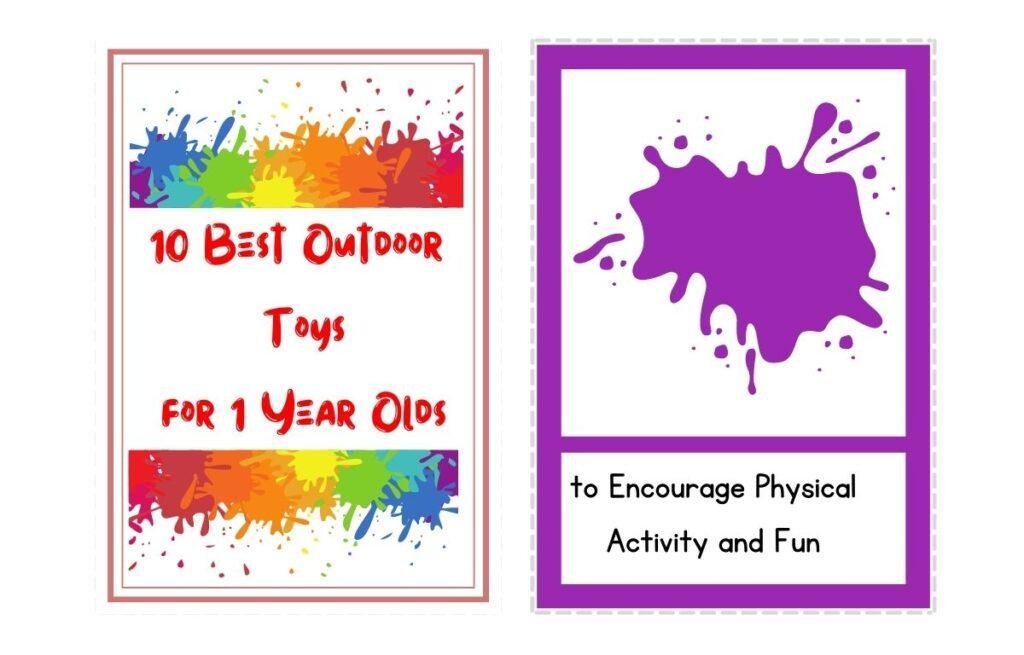In an era where academic benchmarks often overshadow holistic development, children may miss out on crucial life skills that are rarely taught in a traditional classroom setting. The crunch for time in curriculums can leave life skills by the wayside, impacting a child’s ability to navigate the complexities of real-world challenges successfully.
The solution lies in integrating these essential skills into everyday fun—transforming playtime into a fertile ground for developing self-reliance, critical thinking, and emotional intelligence. This approach turns every game and every interaction into an opportunity for growth, all within the naturally engaging realm of play.
Dive deeper into this guide to uncover practical strategies for weaving life skills into your child’s daily activities. You will find age-specific suggestions, innovative game ideas, and technology-assisted tools designed to empower your child with abilities that last a lifetime. Join us in redefining playtime to nurture well-rounded, self-sufficient individuals poised for lifelong success.
The Importance of Life Skills for Childhood Development
In today’s fast-evolving world, parents and educators are increasingly recognizing the gap between the traditional education system and the actual skills required to navigate the complexities of adulthood. This gap is not merely academic but extends to life skills—those crucial abilities that enable children to manage themselves and interact constructively with others. Life skills equip children with a sense of independence and self-reliance that is vital for personal success and societal contribution.
Moreover, there’s an undeniable correlation between the early acquisition of life skills and long-term outcomes. Children who are exposed to critical thinking, problem-solving, and emotional management from a young age tend to display greater adaptability and resilience in the face of challenges. These skills, when honed early on, lay a foundation for not only career success but also for fulfilling relationships and a balanced personal life.
By integrating life skills into everyday fun and games, we can create opportunities for children to learn and grow without losing the joy and wonder of childhood. It’s an investment in their future that begins paying dividends almost immediately, as children learn to apply what they’ve learned in real-world situations. This section of the document delves into the crucial importance of life skills in childhood development, setting the stage for a more detailed exploration of how these skills can be nurtatively incorporated into daily activities and play.
Identifying Key Life Skills to Integrate into Play
Critical thinking and problem-solving
Engaging children in activities that challenge their reasoning abilities can significantly boost their critical thinking skills. Puzzles, strategy games, and open-ended questions encourage children to analyze situations and come up with creative solutions.

Communication and interpersonal skills
Playtime that requires interaction with others helps children learn valuable social skills. Dramatic play, group projects, and sports can enhance their ability to communicate effectively, work in teams, and resolve conflicts.

Emotional intelligence and resilience
Activities that involve sharing, turn-taking, and coping with wins and losses can dramatically improve a child’s emotional intelligence. Storytelling and role-playing games are especially beneficial in helping children understand and manage their own emotions as well as empathizing with others.

Time management and organization
Even at a young age, children can learn the importance of time management and organization. Simple routines built into play, such as setting time limits for activities or organizing toys after play, can lay the groundwork for these essential life skills.

Strategies for Implementing Life Skills through Play
Role-playing and Cooperative Games for Social Development
Role-playing games (RPGs) and cooperative (co-op) activities are fantastic ways to nurture social skills in children. These games require players to assume roles that necessitate communication, negotiation, and empathy, which are all crucial for social development. By working together to achieve common goals, children learn the value of teamwork and the joy of shared success.

Puzzles and Brain Teasers for Cognitive Development
Puzzles and brain teasers challenge a child’s problem-solving skills and enhance critical thinking. Activities like jigsaw puzzles, memory games, and strategy-based games require concentration and the ability to recognize patterns, fostering a child’s cognitive growth. These games also help in developing patience and persistence as children learn to work through frustration to achieve a goal.

Art and Music Activities for Creative Expression
Engaging in art and music stimulates a child’s imagination and allows for self-expression. Through drawing, painting, crafting, and making music, children can convey their emotions and thoughts in a non-verbal way. These activities encourage creativity and innovation, which are life skills that support adaptability and original thinking.

Sports and Physical Challenges for Teamwork and Perseverance
Sports and other physical activities are vital for teaching children about teamwork, discipline, and perseverance. Participating in team sports, obstacle courses, and other group-based physical challenges instills a sense of community and collective effort. It also allows children to experience both winning and losing, preparing them for dealing with success and setbacks in other areas of life.
Age-appropriate Activities for Life Skill Integration
Early Childhood (Ages 3-5)
- Playdough Sculpting: Encourages creativity and motor skill development while allowing children to express emotions.
- Storytelling Circles: Fosters imagination, verbal communication, and listening skills in a group setting.
- Sorting Games: Teaches organization and categorization, building a basis for mathematical thinking.
- Imitation Games: Helps with social role understanding and empathy by acting out everyday adult tasks.
Middle Childhood (Ages 6-8)
- Team Sports: Introduces concepts of teamwork, fair play, and persistence in a group dynamic.
- Board Games: Develops strategic thinking, patience, and how to handle winning and losing gracefully.
- Simple Science Experiments: Encourages curiosity, hypothesizing, and analytical thinking.
- Drama and Skits: Enhances communication and understanding of complex social cues through performance.
Pre-adolescence (Ages 9-12)
- Community Service Projects: Builds a sense of civic responsibility and enhances organizational skills.
- Advanced Puzzles: Challenges critical thinking and promotes concentration and perseverance.
- Book Clubs: Stimulates intellectual discussions, perspective-taking, and deeper comprehension.
- Leadership in Group Projects: Encourages responsibility, delegation, and collaboration towards a common goal.
Each activity is designed to be both fun and instructive, aiming to advocate the seamless fusion of play and holistic development.
The Role of Parents and Educators in Facilitating Learning
Creating an enabling environment for explorative play
Creating an enabling environment for explorative play is pivotal. Parents and educators should strive to offer a space where children feel safe to experiment and take risks, which is essential for their growth and learning. This includes providing a variety of materials and resources that stimulate curiosity and cater to different learning styles and interests.
Guiding and supporting children in skill development
Guiding and supporting children in skill development involves being present and attentive to the learning process, offering encouragement and constructive feedback. Rather than dictating how children should play, adults can serve as facilitators, presenting challenges that are just beyond the child’s current proficiency to promote growth and learning.
Observing and assessing progress in skill application
Observing and assessing progress in skill application is crucial for understanding a child’s development. Through careful observation, parents and educators can gauge a child’s proficiency in various life skills, recognizing areas of strength and those needing further development. This ongoing assessment allows for the tailoring of play experiences to support and extend the child’s learning journey.
Digital Play and Technology in Life Skill Development
Digital play and technology have revolutionized the way children engage with the world, offering new avenues for life skill development. When used thoughtfully, technology can simulate real-world challenges and provide platforms for children to practice problem-solving, decision-making, and creative thinking.
The Pros and Cons of Incorporating Technology into Playtime
Incorporating technology into playtime has its advantages, such as accessibility to a wealth of educational content and the potential to tailor experiences to individual learning styles. However, it also raises concerns about excessive screen time and the potential for decreased physical activity and social interaction.
Selecting Apps and Games That Promote Life Skills
Choosing the right apps and games is crucial for promoting life skills. Parents and educators should look for those that engage children in critical thinking, collaboration, and emotional well-being. It’s all about finding content that is not only fun but also enriching.
Balancing Screen Time with Physical and Interactive Play
Achieving a balance between digital and physical play is key. Limiting screen time to create space for outdoor play, face-to-face social interaction, and hands-on activities is vital for a well-rounded development that equips children with the life skills they need for the future.
Measuring the Impact of Integrating Life Skills into Play
Measuring the impact of life skill integration in play is vital to understand the efficacy of different strategies and activities. Assessing behavioral changes and skill proficiency can be achieved through observation and more structured evaluations, such as skill-based tests or peer feedback. Longitudinal studies offer insight into how the correlation between play and life skills unfolds over time, revealing long-term benefits and developmental milestones. Furthermore, testimonials and case studies provide qualitative evidence of success, often showcasing individual stories of growth and transformation.
Challenges and Considerations
In the journey of integrating life skills into play, several challenges must be considered. Addressing disparities in access to resources and opportunities ensures that all children, regardless of socioeconomic status, can benefit from these strategies. Furthermore, cultural and individual differences in learning should be respected, with a tailored approach that aligns with each child’s unique background and abilities. Adapting strategies for children with special needs is also crucial to provide inclusive and supportive learning environments.
Conclusion
In conclusion, the fusion of life skills with play is more than a pedagogical trend; it’s a critical element in nurturing well-rounded, capable individuals.
This paper reiterated the numerous benefits of life skill integration, from fostering interpersonal skills to nurturing problem-solving abilities. We’ve explored how such interactions can shape a child’s future, offering them the tools to navigate life’s complexities.
As playful learning evolves, it’s imperative to track its impact, adapt to emerging educational challenges, and continue to innovate to meet the changing needs of our children.
FAQs
Why playtime is important for children?
Playtime is essential for children’s overall development as it allows them to learn and practice important life skills in a fun and engaging way. It also helps improve their cognitive, social, emotional, and physical abilities, making them more well-rounded individuals. Additionally, playtime enables children to explore their creativity and imagination, leading to better problem-solving and critical thinking skills.
What type of play helps children to practice the skills required for day to day life?
Any type of play that promotes active participation and challenges children to think, problem-solve, and communicate can help develop the skills required for day-to-day life. This includes both structured play activities like board games and sports, as well as unstructured free play that encourages imagination and creativity. It’s important to have a balance of both types of play to support a
What are life skills lessons for kids?
Life skills lessons for kids refer to the teaching and learning of essential skills that are necessary for successful and independent living. These include but are not limited to communication, decision-making, problem-solving, time management, teamwork, and financial literacy. By incorporating these lessons into playtime activities, children can develop these crucial skills in a fun and engaging way.





